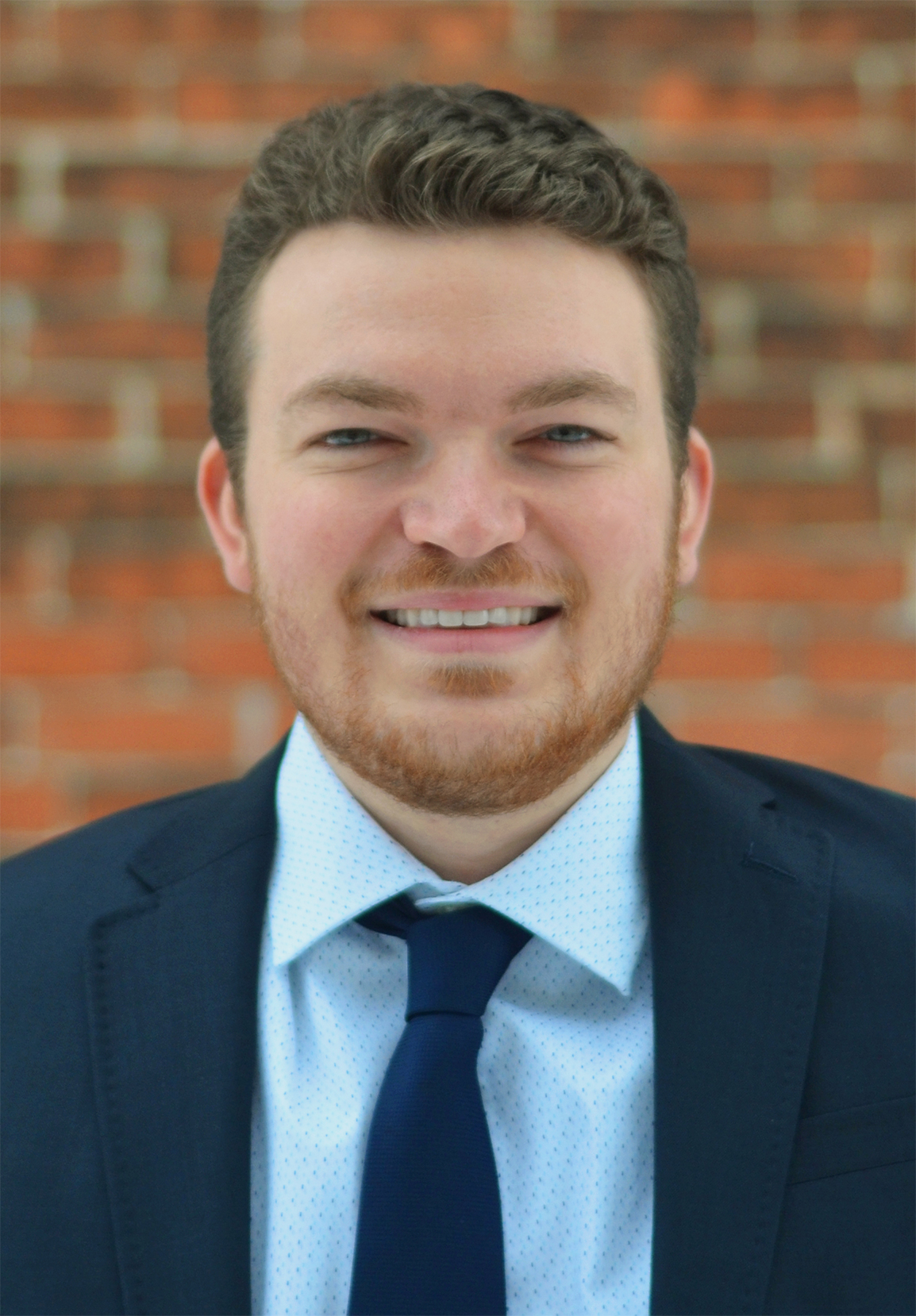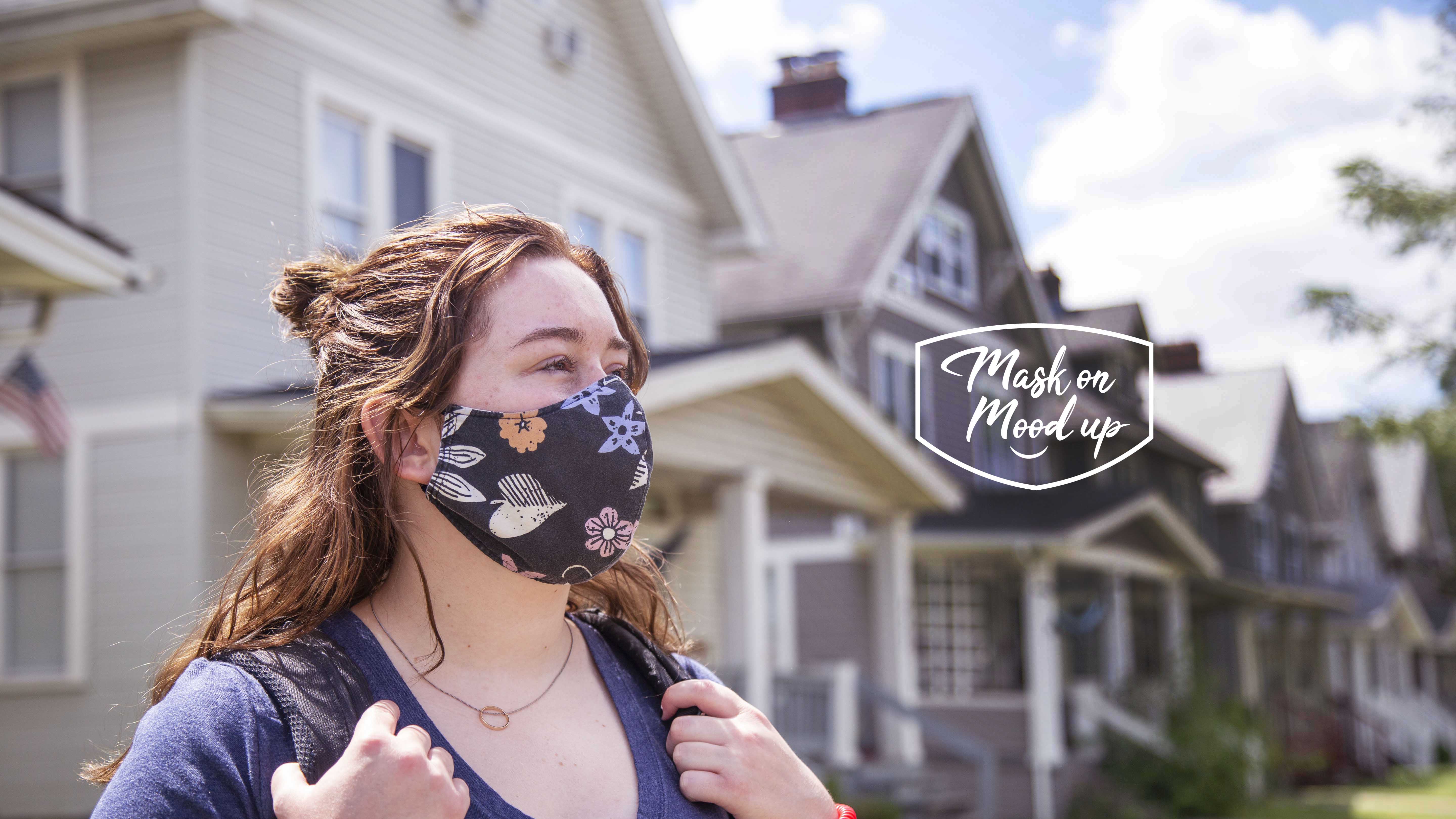
CARES
Wellness partnership supports student mental health
by Melissa L. Weber
The Coronavirus Aid, Relief and Economic Security (CARES) Act awarded The Ohio State University's wellness partnership $1.65 million from November 2020 through June 2022 to support programs that help undergraduate, graduate and professional students build coping and resilience skills in response to events impacting our world, including the COVID-19 pandemic.
Ohio State’s wellness partnership includes the Office of the Chief Wellness Officer, the College of Nursing and the Office of Student Life. Funding from CARES went to programs including online, self-administered stress assessments, interactive workshops that drive students to promote mental health and examine their health habits, and clinical experiences for nursing students using telehealth.
College of Nursing Dean and Ohio State Chief Wellness Officer Bernadette Melnyk, PhD, APRN-CNP, FAANP, FNAP, FAAN, has long been a champion of mental health support for students. “Many of the programs in the college funded with the CARES grant were already underway, and quickly modified to fit the distancing restrictions forced by COVID,” said Melnyk. “We are proud of our programs and I am so proud of the way our faculty and staff stepped up to help our students.”
Telehealth Wellness Hub
The Telehealth Wellness Hub is an online resource that offers students a comprehensive health and well-being assessment. Following the assessment, students can choose to meet with an advanced practice nurse practitioner student from the College of Nursing for wellness coaching via telehealth.
“Telehealth is just one more way we offer care,” said Alice Teall, DNP, APRN-CNP, FAANP, director of Innovative Telehealth Services. “People think healthcare is about the right medicine, but it’s really about how you treat people.”
During November and December, 14 APRN students supervised by 12 nursing faculty members logged 544 clinical hours with more than 300 students who completed wellness assessments. While 88% participants were from the main campus, students from the Lima, Mansfield and Marion regional campuses also completed assessments.
“The students who participated were so grateful for the support,” said Teall. “They told our clinical students how much they appreciated the focus on their wellness, and how important it was to have someone who would listen to them and validate their concerns.”
Kate Gawlik, DNP, RN, APRN-CNP, provided supervision for some of the nursing students. “I am aware of the mental health statistics in the college-aged population, but it always surprises and alarms me how many students are struggling,” Gawlik said. “At the same time, I am always encouraged by their resiliency and ability to stay positive.”
Teall believes that a mental health crisis is occurring during the COVID-19 pandemic. “It’s a pandemic in a pandemic,” she said. While 15% of the respondents described their overall health as fair or poor, 36% described their mental or emotional health as fair or poor. In addition, 42% reported feeling nervous, anxious or on edge more than half of days, 16% reported problems coping with the stress and 96% reported some level of burnout. More surprising was the 8% who reported food insecurity.
“Thanks to Dr. Melnyk, we were able to send those students a Kroger gift card to help them,” said Teall. And she noted that despite all of their concerns, 71% of students feel “hopeful, and expect things to work out.”
“My favorite part of the Wellness Hub is interacting with the students and individualizing their experience,” said Gawlick. “We are fortunate to have so many resources at Ohio State, so making students aware of these sends a powerful message that we care about their well-being.”
Nearly 200 students were referred to support programs on campus and in the College of Nursing following their assessments and telehealth appointments. One such program that supports resilience is MINDSTRONG™.
MINDSTRONG™
MINDSTRONG™ is an evidence-based cognitive behavioral skills-building program that supports students in building coping skills and improving resilience to better respond to stressful situations, anxiety or depressed moods. Twenty different research studies show that this program can help reduce stress, anxiety and depression, and improve healthy lifestyle behaviors. MINDSTRONG™ has been offered to both undergraduate and graduate students in a virtual setting thanks to CARES funding.
CARES funding has made it possible to create several online versions of the program and supports a comparative study of the different versions.
“One version will be completely self-paced, on their own,” said Jacqueline Hoying, PhD, RN, director of the MINDSTRONG™ program. Another version is digitized and self-paced, but a coach will check in with participants three separate times. These two new versions will be compared to the original, evidence-based, facilitator-guided program.
Stress and Well-Being Assessment
Another program expansion funded by the CARES grant is the conversion of an online screening tool to measure stress and well-being into a smartphone app. The program was designed to connect participants with resources that are available to help them cope with life’s challenges.
“The original idea was to provide students with a method to assess their stress levels and give them a tool to determine if they need additional help,” said Sharon Tucker, PhD, APRN-CNS, NC-BC, FNAP, FAAN, Grayce Sills Endowed Professor in Psychiatric-Mental Health Nursing. “I am always looking for ways to promote mental and physical health.”
The online tool scores student responses using valid and reliable survey measures. With their scores, students can also see examples of “normal” ranges and “concerning” ranges on their levels of stress, anxiety and depressive symptoms, along with their healthy behaviors. Students are directed to appropriate resources, if needed.
“We are trying to de-stigmatize the need for mental health support,” said Tucker. “One out of every five people will suffer mental health difficulties in their lives.” The new app also will include microlearning modules that are based in mindfulness to help students learn to better cope with situations that trigger difficult emotions.
Health Athlete
While many of the programs supported with CARES funding focus on an immediate response to current mental health challenges caused at least in part by the pandemic, Health Athlete is geared more to the long-term improvement of health.
“The Health Athlete program was a paradigm shift for me,” says Brenda Buffington, EdD, NBC-HWC, EP-C, executive director of Health Athlete. “The focus is on energy management rather than time management. How do you manage energy throughout the day to be your best self?”
This program was developed in partnership with Johnson & Johnson’s Human Performance Institute, rooted in 30 years of proprietary research based on their training of elite athletes and Fortune 500 executives. During Health Athlete workshops, participants learn how to be more engaged, productive and optimistic by examining their personal story and determining their ultimate purpose.
“Participants are coached to think about their goals and write a personal mission statement,” said Buffington. Health Athlete was initially brought to the Ohio State campus several years ago for faculty and staff. Sessions for students are more recent, and the CARES funding allowed the program to be offered to more students and in an online format.
“It’s never too early to formulate a mission for your life,” said Buffington. “The program offers ways to energize when you are feeling fatigue, including mindfulness strategies, recovery breaks and lots of self-assessment.”
Comments from student participants have been overwhelmingly positive. “I loved this workshop!” reported one student. “Honestly, it really opened my eyes to different ways of thinking about myself and my life that I haven’t approached in a long time. Thank you so much for running this program!”
Initiatives supported by the CARES grant continue through June 2022 so students at all levels can receive the support they need to develop mental well-being skills that will serve them both now and far beyond the pandemic.
Safe and Healthy Campus Challenge
In the fall of 2020, the Office of the Chief Wellness Officer, the Innovation Studio and the Office of Student Life sponsored the Safe and Healthy Campus Innovation Challenge. Interdisciplinary teams of students with faculty mentors submitted creative ideas to keep campuses safe and healthy during the pandemic.
“Since launching the Innovation Studio in 2017, we’ve been astonished by the creativity and empathy of our students,” said Tim Raderstorf, DNP, RN, who serves the college as chief innovation officer. “This challenge was a prime example of why we democratize innovation at Ohio State through empowering students to solve the problems that impact them most.”
The top-rated pitch in the mental health category was Peerzle, an app envisioned by business student Matthew Trotta that will offer support to college students who are dealing with mental health issues by connecting them to peers who are willing to listen and lend support.

“The name Peerzle is a play on the words "peer" and "puzzle," said Trotta. “As in, we connect peers like puzzle pieces ... It's a way for users to connect virtually with each other at a time when social isolation and mental health struggles are at an all-time high.”
He is being mentored by Dean Melnyk and Megan Amaya, PhD, director of Health Promotion and Wellness at the College of Nursing, while the platform is being developed. The app is expected to launch in May 2021.

Mask On/Mood Up
Decrease stress and improve your mood whenever you wear a mask
The Mask On/Mood Up movement, a partnership among The Ohio State Office of the Chief Wellness Officer, the Office of Student Life, and the Columbus Foundation’s Kind Columbus initiative, launched a campaign that combines stress reduction, mask wearing and kindness.
The Mask On/Mood Up movement asks people to perform three brief, evidence-based tactics that research shows can bring calm to someone who is experiencing stress:
- deep abdominal breaths using the 5-7-8 method
Inhale for a count of 5, hold for a count of 7, exhale for a count of 8. - being kind to yourself through self-affirmation
Say a self-affirmation out loud 10 times such as “I am calm,” “I’ve got this,” “I’m too blessed to be stressed.” - being kind to others through gratitude
Name someone you are grateful for and why, then send a message to that person expressing your gratitude.
“Stress, anxiety and depression have spiked exponentially since COVID-19 came into our lives. We are introducing Mask On/Mood Up because we need to remind ourselves that we have the power and ability to use simple, evidence-based strategies to reduce stress and improve our mood,” said Chief Wellness Officer Bernadette Melnyk.
